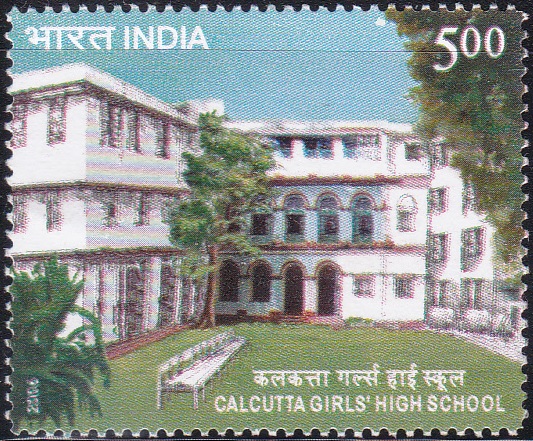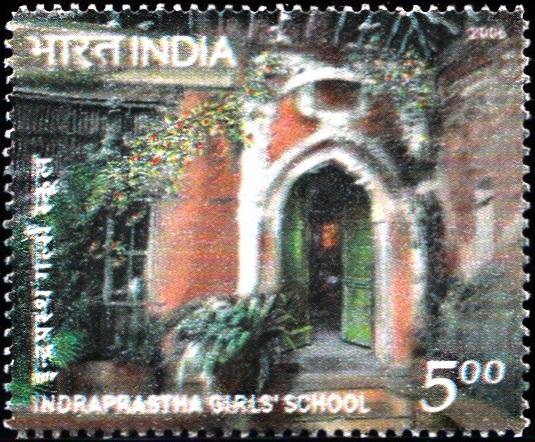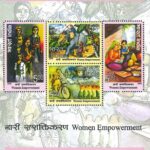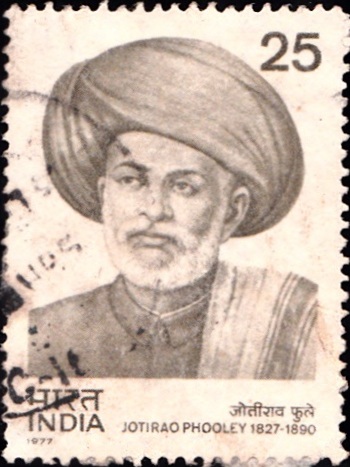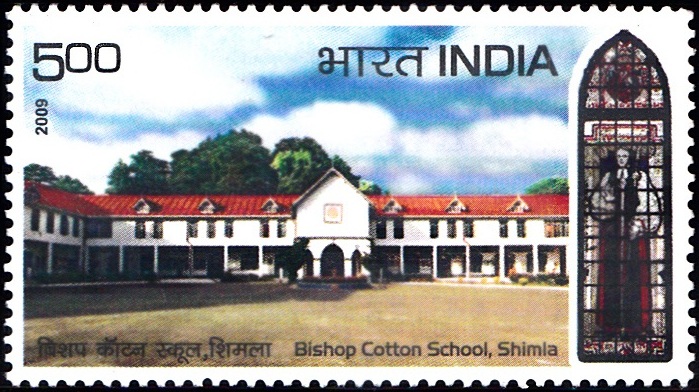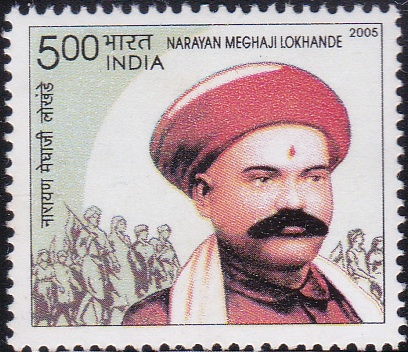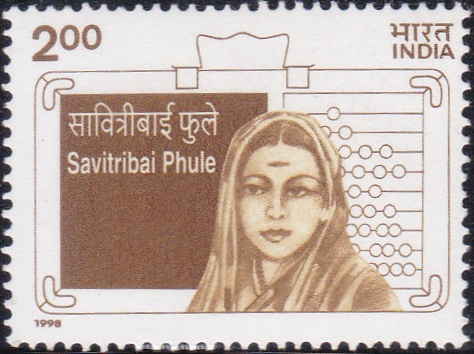
Savitribai Phule
A commemorative postage stamp on the Death Centenary of Savitribai Jyotirao Phule, first female teacher of India and an important figure of social reform movement in Maharashtra :
Issued on Mar 10, 1998
Issued for : The Department of Posts is proud to issue a special commemorative stamp on Savitribai Phule.
Design Credits :
Stamp & FDC : National Alliance of Women (NAWO)
Cancellation : Alka Sharma
Type : Stamp, Mint Condition
Colour : Single Colour
Denomination : 200 Paise
Overall size : 3.91 x 2.90 cms.
Printing size : 3.55 x 2.54 cms.
Perforation : 13 x 13
Paper : Imported un w/m Adhesive Gravure Coated Stamp Paper in reels 47 cms. width
Stamps Printed : 0.4 Million
Number per issue sheet : 35
Printing Process : Photogravure
Printer : India Security Press, Nashik
Name : Savitribai Jyotirao Phule
Born on Jan 3, 1831 at Naigaon, Maharashtra, British India
Died on Mar 10, 1897
About :
- Savitribai Phule was born on 3rd January 1831. She completed her study from the Normal School during 1846-47. Savitribai Phule understood the importance of education and educating women became her life mission. She was also the first Indian woman who took the training in teaching in Mrs. Mitchell’s of ‘Normal School’ where Savitribai’s educational potentials were tested. She was wife of social reformer Mahatma Jyotirao Phule who initiated pioneering work in education and shared his thoughts on the importance of women’s education.
- Savitribai Phule and Mahatma Phule together started first girls’ school. Those were the times when the concept of educating girl received very meagre importance. It was therefore difficult to propagate the need of educating women in the society, even though they individually believed that if girls are educated and informed it would not only help the girls themselves but the next generation to come will be benefitted which will ultimately upgrade the society in general. Eventually their joint efforts began to show its effects. It was so mentioned in a report compiled by education inspector Cap. J. F. Lefter on 26th December 1856. Both Jyotiba and Savitribai genuinely believed that education means knowledge and information and so it has to reach at every strata of the society. Later in the year 1852, school for the untouchables was started. Girls from these castes began to join the school.
- Pioneering work of Savitribai did not limit to education itself but liberating women from the cultural patterns of male dominated society became the prime cause of her living. She supported widow remarriage and initiated the ashram place for brahmin widows. She also supported the concept of court marriages.
- Savitribai Phule, in 1868, welcomed the untouchables to use the well in the backyard of her house to drink water and she also adopted a son of a widow in the year 1873. She was appointed as the President of Satyashodhak Samaj Parishad in 1893.
- On 10 March 1897 Savitribai Phule expired while serving the plague victims.
- Text : Stree Aadhar Kendra, Pune & National Alliance for Women, New Delhi.


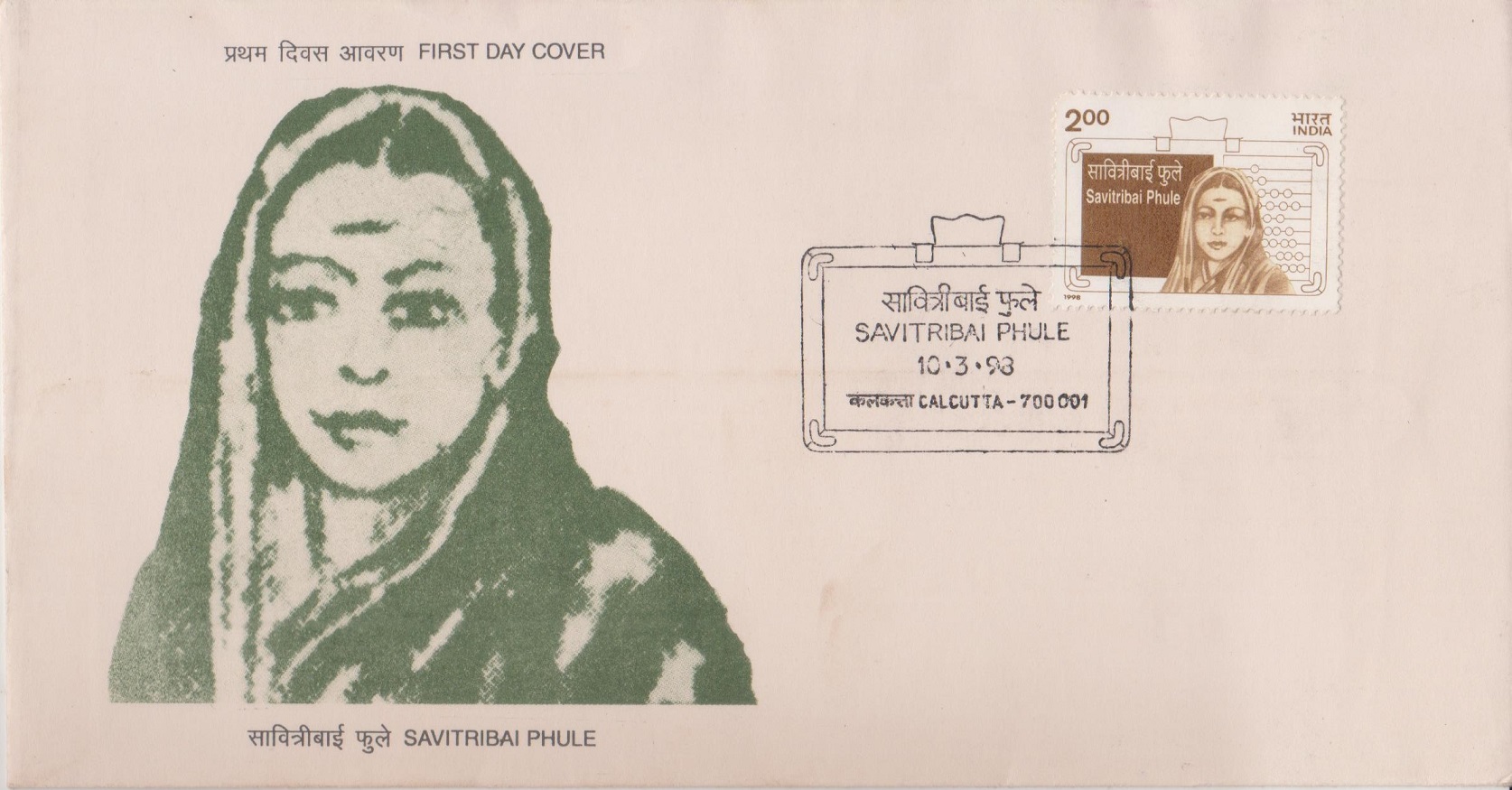 Issued by
Issued by